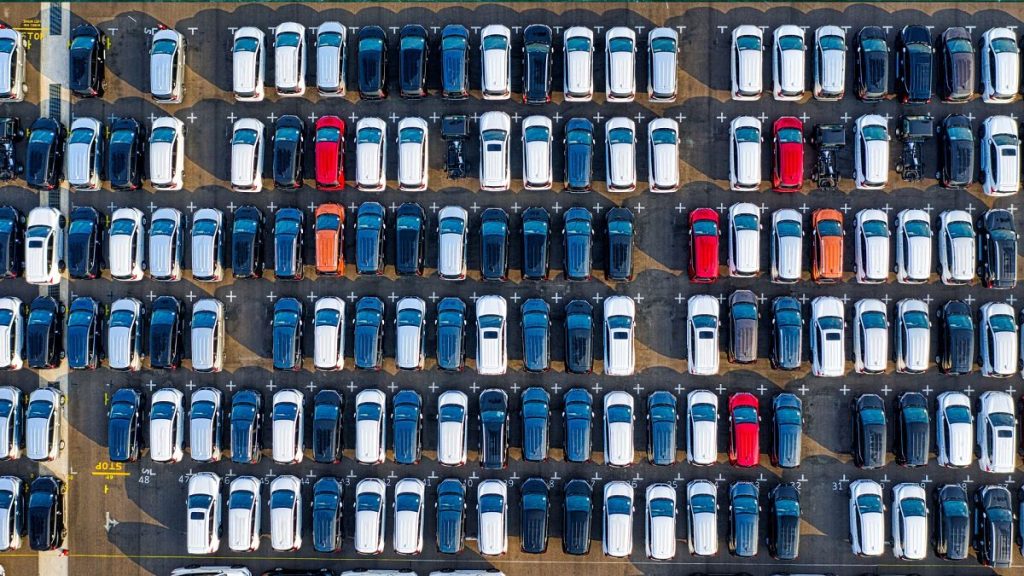The European automotive market in 2024 presented a mixed picture, marked by modest overall growth punctuated by significant variations across key member states. While the total number of new car registrations across the EU inched up by a marginal 0.8% to reach approximately 10.6 million units, this figure masks underlying disparities in individual country performances. Spain emerged as a beacon of growth, with new car registrations surging by a robust 7.1%. This contrasted sharply with declines observed in other major markets, including a 1% drop in Germany, a 3.2% decrease in France, and a 0.5% dip in Italy. These contrasting trends highlight the complex interplay of factors influencing the European automotive landscape, including persistent supply chain disruptions, shifting consumer preferences, and the lingering impact of semiconductor shortages. The December figures further underscored this dynamic, with a 5.1% surge in EU-wide registrations driven primarily by a remarkable 28.8% jump in Spain and a 1.5% increase in France, while Germany and Italy continued to lag with declines of 7.1% and 4.9% respectively.
The evolving powertrain landscape also contributed to the complexities of the 2024 market. While petrol vehicles retained their dominance with a 33.3% share of total registrations, the ascendancy of electrified vehicles continued, albeit at a varied pace. Battery electric vehicles (BEVs) captured 13.6% of the market, while hybrid electric vehicles (HEVs) secured a substantial 30.9% share. This shift towards electrification reflects growing environmental awareness and increasingly stringent emissions regulations, but also indicates the ongoing transition phase in which conventional internal combustion engine vehicles still hold a significant portion of the market. The December figures, however, revealed a temporary setback for BEVs, with registrations declining by 10.2% due to significant drops in Germany and France, possibly influenced by external factors such as increased tariffs on Chinese imports.
A closer examination of the December data reveals further nuances within the market dynamics. While overall EU registrations saw a positive uptick, contrasting November’s decline, the individual powertrain segments experienced divergent trends. Petrol car registrations declined by 1.8% across the bloc, with France and Italy experiencing double-digit drops, while Spain bucked the trend with a 16% increase. This divergence underscores the differing consumer preferences and market conditions across member states. Similarly, diesel car registrations continued their downward trajectory, with the market share shrinking to 9.8% in December, a significant drop compared to the previous year. This decline highlights the ongoing shift away from diesel technology in favor of cleaner alternatives.
The December downturn in BEV registrations warrants further analysis. The 10.2% drop, primarily attributed to significant declines in Germany and France, coincided with the implementation of increased tariffs on imported Chinese electric vehicles. This policy intervention, aimed at addressing concerns about unfair competition due to government subsidies, appears to have had a direct impact on the market share of Chinese BEV manufacturers. Conversely, plug-in hybrid vehicle registrations witnessed a 4.9% increase in December, driven by robust growth in France and Germany. This suggests that some consumers may have shifted their preferences towards hybrids, potentially influenced by the price advantage they enjoy compared to BEVs, particularly in light of the new tariffs.
The European automotive market in 2024 navigated a complex landscape shaped by various interconnected factors. Supply chain disruptions, particularly in the semiconductor sector, continued to exert an influence, impacting production and delivery timelines. Shifting consumer preferences, driven by environmental concerns and technological advancements, fueled the growth of electrified vehicles, although petrol cars remained the dominant choice. Economic uncertainties, particularly concerning the rising cost of living, likely also played a role in purchasing decisions, contributing to the mixed performance observed across different markets. The implementation of tariffs on Chinese electric vehicle imports introduced a new dynamic, impacting the competitive landscape and potentially influencing consumer choices.
Looking beyond the immediate data, the European automotive market is poised for continued transformation. The ongoing shift towards electrification is expected to accelerate, driven by stricter emissions regulations and advancements in battery technology. The interplay between different powertrain technologies, including hybrids, plug-in hybrids, and fully electric vehicles, will continue to evolve, shaped by consumer preferences, technological advancements, and regulatory frameworks. The competitive landscape will also remain dynamic, influenced by the interplay between established European manufacturers and emerging players, particularly from China. The impact of geopolitical factors, such as trade policies and international relations, will also continue to play a role in shaping the future of the European automotive market.














